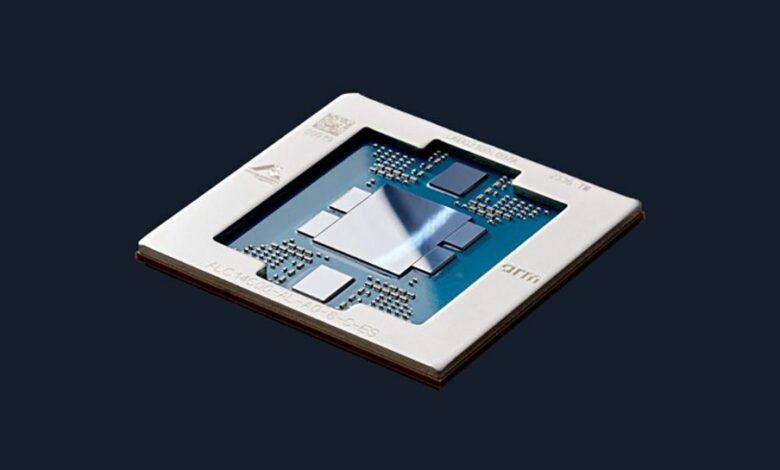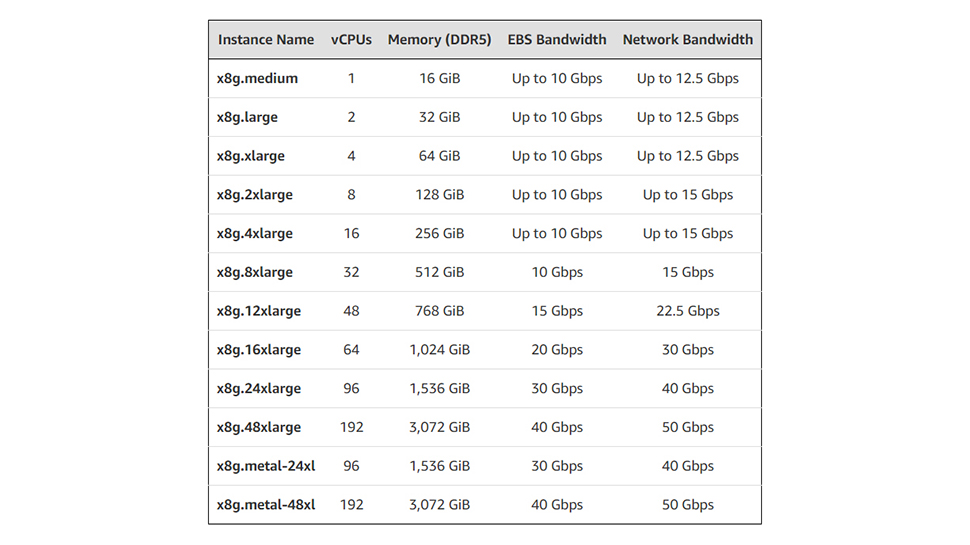AWS introduces new proprietary Graviton4 CPUs with 192 cores that can support up to 3TB of RAM, while chipping away at Intel and AMD’s memory advantage

At the AWS re:Invent 2023 event in November 2023, CEO Adam Selipsky unveiled the company’s Graviton4 chips, built on Arm’s “Demeter” Neoverse V2 core. These new processors were claimed to offer up to 30% better compute performance, 50% more cores and 75% more memory bandwidth than the Graviton3 processors, aimed at scaling memory-optimized and compute-intensive workloads.
Graviton4-powered R8g instances became generally available in July 2024 and then Phoronix benchmarked it, the The processor came in about 5% ahead of the Intel Xeon instance and wasn’t far behind AMD’s EPYC.
AWS has now stepped things up by introducing new memory-optimized X8g instances.

Improved performance
X8g instances are available in ten virtual formats and two bare-metal configurations, with up to 3 TiB DDR5 memory and 192 vCPUs. These instances are also considered AWS’s most energy-efficient EC2 offering to date. With a memory-to-vCPU ratio of 16:1, the X8g instances also feature full encryption for all high-speed hardware interfaces and provide additional security features.
The X8g instances offer notable improvements over their predecessors, offering three times more memory and vCPUs than X2gd instances. They also double EBS and network bandwidth, making them an attractive solution for high-memory workloads. Graviton4’s twice the L2 cache per core and 160% higher memory bandwidth contribute to up to 60% better compute performance.
In terms of real-world applications, AWS says X8g instances are already being used for SAP HANA and SAP Data Analytics Cloud, with performance improvements of up to 40% for transactional workloads compared to Graviton3.
AWS notes that the X8g instances allow users to scale up or out, providing flexibility for memory-bound applications currently running on different instances. The new instances are now available in the US East (N. Virginia), US West (Oregon), and Europe (Frankfurt) AWS regions and support various pricing models such as On-Demand, Spot, and Reserved Instances.




